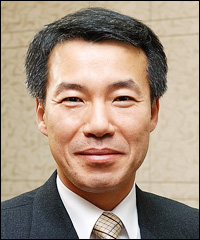IBM Korea under investigation

Tech firm suspected of dumping products on sales agent
The nation’s antitrust regulator has begun investigating IBM Korea for allegedly dumping its software products on a sales agent.
In addition, the company banned the agent from selling the stockpiled products of another software firm the former took over. KSTEC, the sales agent in question, had been the exclusive vendor for the firm
KSTEC said Tuesday that the FTC’s probe into IBM Korea is underway, saying it has sustained losses worth 6.1 billion won ($5.33 million) since 2002 due to the forced sales, but the software giant has given no compensation.
“Forced sales has caused significant losses to my company. It’s obviously IBM’s abuse of power on its small dealer,” KSTEC President Lee Seung-do told The Korea Times, Tuesday. “I don’t think I’m a sole victim. There must be many other dealers facing the same trouble.”
Lee added such a practice is deep-rooted in the country’s software industry.
“Considering this, I don’t think IBM Korea can produce a fundamental solution for the problem on its own,” he said. “I strongly urge IBM’s headquarters and senior auditors to look into the case and come up with a fundamental resolution as early as possible.”
The Fair Trade Commission (FTC) and IBM Korea, headed by country manager Lee Hui-sung, have refused to comment on the issue, citing internal policy.
The problem took place shortly after IBM acquired ILOG, an independent software firm, in January 2009.
Lee’s company had served as an exclusive sales channel for ILOG products for the local market since 2002 and due to mutual trust, KSTEC kept a higher-than-average stock of ILOG products. Experts said such a sales practice is widespread since it makes it easier for software firms to meet their sales goals.
But six months after the acquisition, IBM unilaterally withdrew KSTEC’s exclusive right for sales and banned the sales of ILOG products in stock.
KSTEC urged IBM to either compensate its losses caused by the ban or lift the ban. The U.S.-headquartered company rejected this.
In the fruitless tit-for-tat between the two firms over the past three years, KSTEC’s losses have snowballed, posing a grave threat to the firm’s survival, according to Lee.
“IBM has verbally promised that it will give me higher sales commissions if I decide to take the existing losses,” Lee said. “I cannot trust it in the absence of a written commitment.”
Lee vented frustration over IBM’s high-handed attitude. With the dispute remaining unsolved, he complained, IBM Korea’s senior sales manager pressed the company to buy a package of new software for 84 million won in March last year and another one worth 54 million in June in the same year.
“I couldn’t reject the offers since I decided to resolve the problem, not to sever ties with IBM,” he said. “I want to continue my business with IBM.”
In April this year, IBM Korea filed a suit against KSTEC, claiming it was not liable to compensate for the latter’s losses. <The Korea Times/Park Si-soo>



